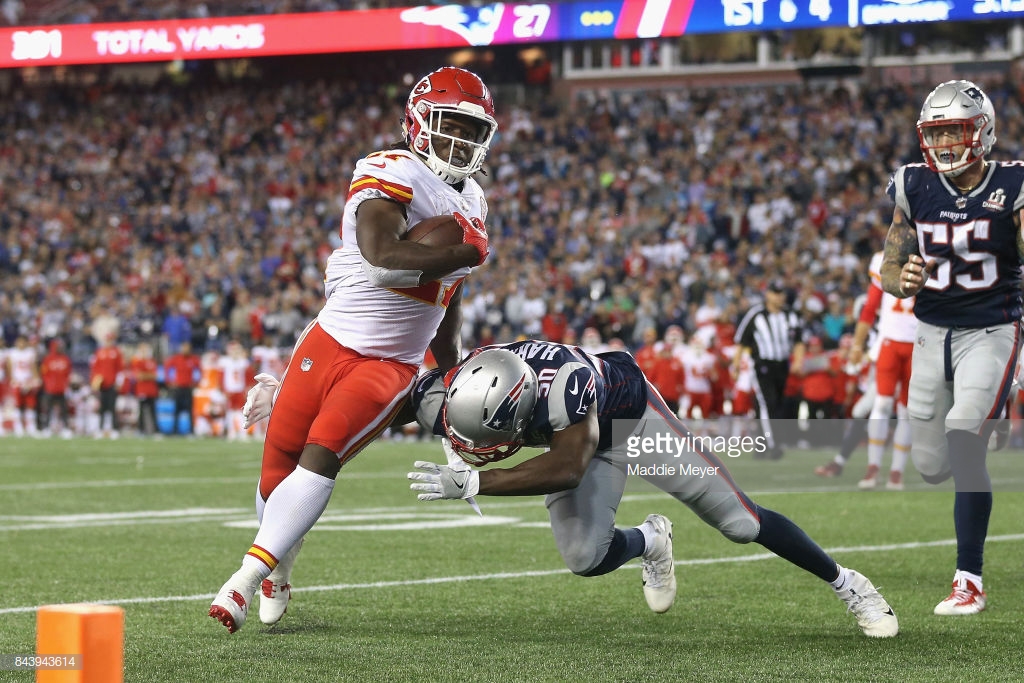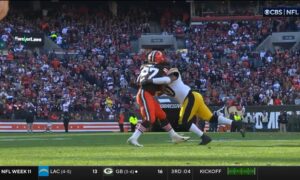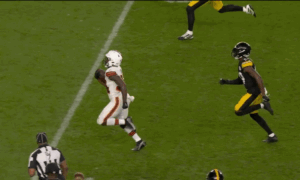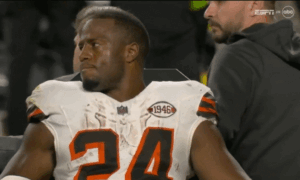I haven’t exactly polled Cleveland Browns fans, but I’m still struggling to come up with the reasoning behind their decision to sign former Kansas City Chiefs running back Kareem Hunt, who was released during the 2018 season after video was released of him involved in a physical confrontation with a woman in a hotel hallway.
The league is continuing to investigate the situation as he currently sits on the Commissioner’s Exempt List, the Browns having signed him to a one-year contract worth in excess of the veteran minimum. The expectation seems to be that he will be suspended for at least six games.
But why sign him? the Browns already chose to trade Carlos Hyde last offseason in part because ownership wanted them to use running back Nick Chubb more. They did after that, and he was very successful, winning the AFC Offensive Rookie of the Week Award multiple times. They also have Duke Johnson, whom they like.
So why bother with the gamble? This is an especially incongruous move in light of the fact that they chose to release linebacker Mychal Kendricks last offseason after he admitted to insider trading, a crime for which, if I’m not mistaken, legal punishment is still pending (and yet he was later signed by the Seattle Seahawks).
As has almost always been the case in sports, talent continues to trump character, and people who do bad things find that they can still earn a handsome living in spite of their behavior. But this particular aspect of the conversation is a bit too thorny for me to address right now, not wanting to wade into the subsequent debate.
It just doesn’t seem to be much of a sensible move from the Browns’ standpoint. There is little incentive for the team to attract this sort of negative attention to themselves at this point, seemingly on the verge of a long-awaited turnaround for the franchise.
Then again, they did—General Manager John Dorsey, who drafted Hunt with the Chiefs, did—make the decision to draft the likes of Antonio Callaway and Caleb Brantley over the course of the past two years. So maybe this is simply okay for Dorsey.
In 2017, Brantley, a defensive lineman drafted that year in the later rounds, saw his stock fall after he was alleged to have attacked a woman, knocking her unconscious, though the charges were later dismissed. Brantley did not make the roster in 2018.
Callaway was suspended in 2016 after he was accused of sexually assaulting a woman, though a Title IX hearing ultimately cleared him of three violations. He chose to enter the 2018 draft while serving a suspension in 2017.
As long as you come at a bargain, NFL teams are still willing to give you a chance no matter your character, at least outside of a very few select incidents—and even in those cases, one could argue that there would still be teams calling somebody like Ray Rice if he were simply good enough. The Pittsburgh Steelers are certainly not immune to this phenomenon, but Dorsey is quickly developing a pattern.








